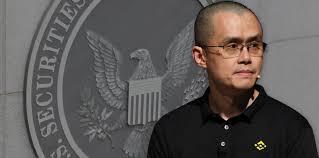Huawei Blockchain Zhang Xiaojun: Blockchain empowerment of the real economy needs to face five questions
"If I become a Buddha, there is no magic in the world; if I become a demon, what is Fonn?"
On June 2nd, at the 2019 China Blockchain Technology and Application Summit Forum hosted by the China Computer Society (CCF), Babbitt asked Zhang Xiaojun, director of the Huawei Blockchain Project, whether the Sino-US trade war was against Huawei's block. The impact of chain exploration, Zhang Xiaojun gave the answer.
This answer echoes a sentence in a tragic and passionate internal letter issued by He Tingbo, the president of Haisi in the early morning of May 17th: the singularity of the heroes, the hardships of the Noah’s Ark .
Since the US government has included Huawei in the list of entities of the US Department of Commerce's Industry and Security Bureau, everyone has been sweating for Huawei's future survival. The performance of Huawei's various business line personnel seems to have been quite confident. Behind the self-confidence is Huawei's sense of crisis and clear understanding of new technologies.
- Aside from prejudice, talk about Voice, which is the new sustenance of BM social dreams.
- Global STO regulatory status and trend update
- Bystack – seeing the "value loop" of the world
The blockchain is known as the next generation Internet infrastructure, and Huawei will not miss it.
"Huawei Company, as one of the leaders of high-tech, has invested a lot of research in blockchain technology and has a wealth of experience." The latest blockchain technology and application in Huawei's blockchain technology development team. In the middle, we saw Huawei's investment in the blockchain.

The book further revealed that Huawei's blockchain technology development team has gathered a group of professors, doctors, returnees, Huawei researchers and technical backbones. In the area of blockchain, such as distributed systems, algorithms, cryptography, networking, data management, etc., the technology development team has an average of more than 6 years of experience.
It is precisely because of the thorough study of the blockchain that Zhang Xiaojun did not talk about the “subversive” impact of blockchain technology in his speech, but pointed out the problems faced by the blockchain.
Question 1: Blockchain does not deliver value
The blockchain is seen as the fourth generation of technological revolution following steam engines, electricity, and information. One of the key points is value transfer. Zhang Xiaojun believes that the development of the blockchain has not yet achieved value transfer.
“Value is money, but the blockchain is now only connected to data, such as the ability to prevent tampering and traceability based on blockchain, but the real value transfer must be to bring in the money, and the value of the block still has a long way to go. ""
Question 2: The application of blockchain in financial scenarios needs to be refined
According to Tractica, the global enterprise blockchain market is around $4.6 billion in 2018. The industry is mainly distributed in insurance, finance, healthcare, government, and manufacturing, with finance accounting for the bulk. It is estimated that by 2025, the global blockchain market will grow to $20.3 billion, but the financial market is not well established.
In this regard, Zhang Xiaojun analyzed that in the short term, financial requirements for blockchain security are higher, resulting in a slower financial application. Although financial plates account for a larger proportion, future scenarios need to be refined.
Question 3: Domestic blockchain standards need to change direction and catch up
IEEE, ISO, ITU and other global organizations are doing blockchain standards, and the fastest is the IEEE standard. Because of the vertical industry, the industry models are matched. The IEEE has released seven versions from P2418.1 to P2418.7. 1 is for IOT, 2 is for data format, starting with 3, customized for individual industries such as energy, medical, and supply chain finance. Therefore, it can be seen that the current overseas standards are based on framework standards and vertical industry standards.
The reason why this phenomenon occurs, Zhang Xiaojun explained, because now all IT-oriented applications, its format will increasingly deviate from the simple connection standard, facing the framework standard. At present, the domestic standard is basically based on the enterprise standard or evaluation standard of a certain scene . Zhang Xiaojun called for domestic standards to be accelerated.
Question 4: Lack of blockchain industry development alliance
Since 2017, BITA, the Trusted IoT Alliance for IOT, and the GSMR and CBSG for Carriers have emerged. It can be seen that all of the above alliances are oriented to a single vertical industry, and it is hoped that their respective directions will be proved in separate industry attributes. At present, there is a lack of a unified industrial development alliance in the world.
Question 5: Blockchain is not focused on technology, but the right scene is the root of its value
Blockchain technology is a mechanism model formed after an effective arrangement of various existing technologies. Is this mechanism model a future blockchain mechanism?
Zhang Xiaojun’s answer is: Not necessarily. The current mechanism can achieve mutual trust in the transaction process, and it is not necessary to use existing technology in the future. Therefore, the blockchain is based on the appropriate scenes, and what kind of scenarios determine what kind of technology. The use of blockchains now increases operating costs, but it reduces the hassle of the entire process.
Of course, if you just stay in the study of theory, you will never be able to land the blockchain to the industry, let alone the empowerment of the real economy. As Huawei Cloud BU CTO Zhang Yuxi said in his book, “The blockchain is a new technology. Although it faces some unresolved problems and challenges in application, it is precisely because of the existence of these problems and challenges that it promotes technology. Continuous development and maturity."
Therefore, on February 1, 2018, Huawei released the enterprise-level blockchain open platform blockchain service BCS. BCS is built on HyperLedger, and the optimized performance can reach THP above 5000+ in commercial environments. Adhering to the philosophy of " doing no business, not taking data ", Huawei hopes to provide blockchain platform bases for all walks of life from " cloud, network, end, and core ", and empower more physical industries.
We will continue to update Blocking; if you have any questions or suggestions, please contact us!
Was this article helpful?
93 out of 132 found this helpful
Related articles
- The annual inflation rate has dropped from 5% to 1%. Is the new EOS proposal reasonable?
- Microsoft Tanlin: Web3.0 era, breaking the data island, blockchain to return the Internet to the heart | Babbit College Open Course Record
- Who is more valuable in Maotai and Bitcoin?
- TokenGazer: Ethereum May monthly comment
- Market Analysis: EOS is still stable, BTC or below 8500
- Getting started with blockchain | How to use Google Authenticator?
- The Yangtze River Delta became the first “winding” area in the country: the full coverage of medical loans for medical treatment, the efficiency increased by 10,000 times






